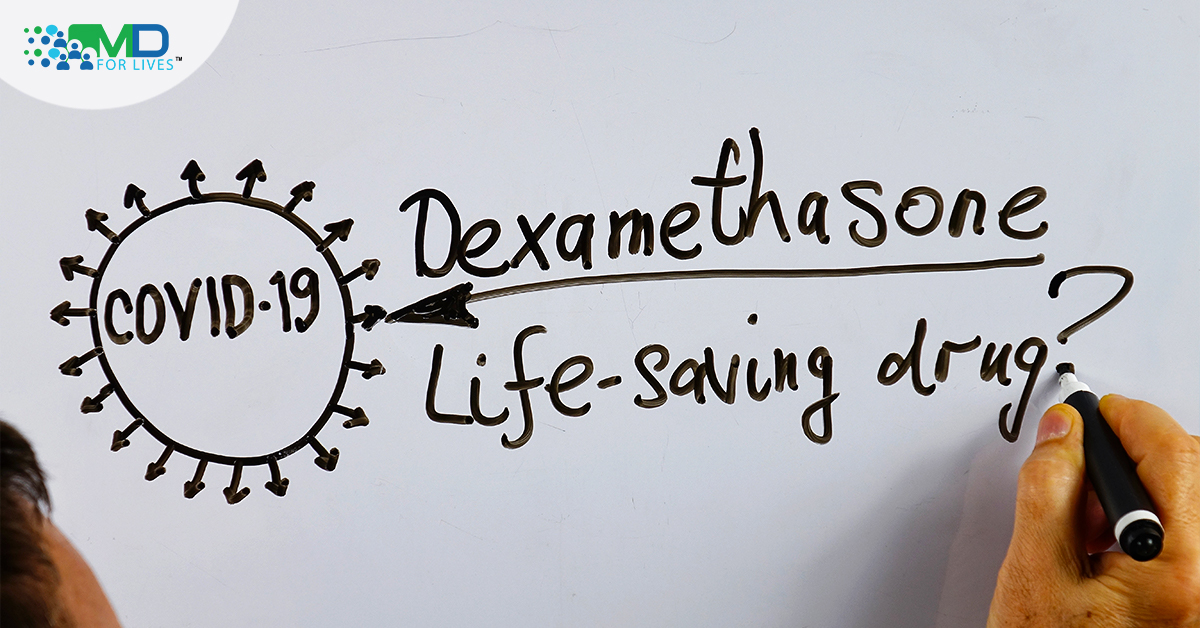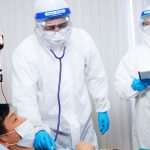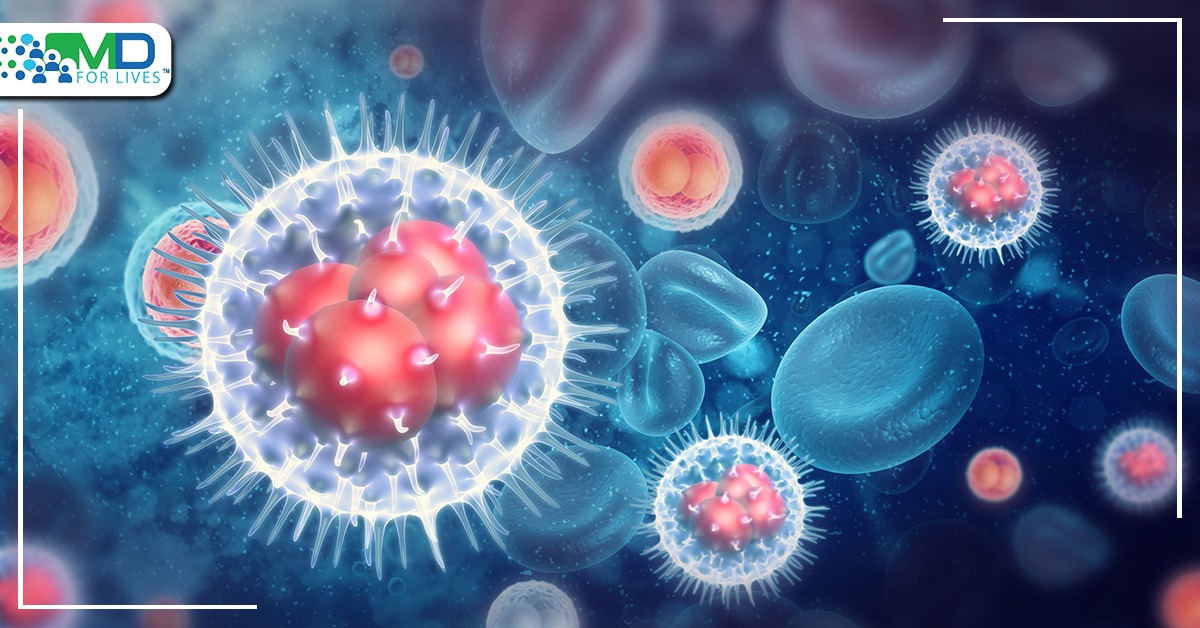Six months after the COVID-19 outbreak, with more than 10 million cases and 500,000 deaths worldwide, the end of the pandemic still appears to be elusive. Though the world is far from reaching total freedom from the coronavirus, humankind has received promising news that could bring this a little bit closer. Clinical trials from Oxford University have shown that low-dose dexamethasone, a corticosteroid, may reduce the severity of the disease in critically ill patients. It may be the breakthrough of the year, but healthcare professionals caution that corticosteroid use is not without its limitations.
Dexamethasone is a synthetic glucocorticoid used in a variety of conditions, ranging from allergic reactions to rheumatic disorders and even cancer. Due to its affordability and flexibility for use, this anti-inflammatory and immune suppressant drug is widely available around the world. Even though the doses needed for this medication are usually lower than 10mg, it does not mean that it is without troublesome side effects. If anything, a drug that is potent enough to be used in severe COVID-19 cases should definitely need to be used with caution.
Dexamethasone RECOVERY Study in the UK
Severe COVID-19 infection involves a cytokine storm with excessive inflammation, possibly resulting in acute lung injury and progression to acute respiratory distress syndrome (ARDS) [1]. Early studies with steroids, particularly methylprednisolone, showed significant improvement in patients evidenced by reduced length of hospital stay [4]. Hence the anti-inflammatory corticosteroid dexamethasone was pinpointed for its possible use in COVID-19. It showed remarkable results, reducing mortality by one third in ventilated patients and by one fifth in patients who required oxygen supplementation [6]. The results translate to one life saved out of eight patients on ventilators and one out of twenty-five patients for those on supplemental oxygen. Experts estimate that 5,000 lives would have been spared had the drug been used at the start of the pandemic.
Randomised Evaluation of COVID-19 Therapy (RECOVERY) is a large-scale clinical trial conducted by the University of Oxford dedicated to identifying potential treatments for people with COVID-19. The trials held for hydroxychloroquine and lopinavir-ritonavir showed no clinical benefits, but the results for dexamethasone brought hope for people all over the globe [6]. WHO Director-General, Dr Tedros Adhanom Ghebreysesus, remarked that this was the first treatment that showed promise in reducing critically-ill COVID-19 patients [8]. Health care workers, patients, and quarantined citizens worldwide were elated to hear the news about a breakthrough drug.
The COVID-19 Treatment Guidelines Panel recommends the use of dexamethasone at 6mg for ten consecutive days only in the treatment of patients requiring supplemental oxygen [1]. The RECOVERY trial did not find any evidence that the drug worked on patients suffering from milder cases. Participants for the randomised study involved a total of 4,321 patients with 2,104 of those on dexamethasone. The study has been submitted for peer review, and hopefully, more drugs will prove to be effective against the coronavirus. RECOVERY is currently conducting trials for low-dose dexamethasone in children, azithromycin, tocilizumab, and convalescent plasma.
The Risks Involved
Since dexamethasone is such an inexpensive and widely available drug, it could quite possibly fall into the wrong hands. Misuse and overuse of dexamethasone can have severe effects. It can cause fluid retention, hyperglycemia, convulsions, cardiac arrhythmias, and weight gain due to abnormal fat deposits. Those who use the drug for chronic conditions may have a characteristic round “moon face” and bulky shoulders. Apart from altering the appearance, one of the most bothersome risks of dexamethasone is its immunosuppressive properties. Improper use may cause increased susceptibility to other illnesses, such as bacterial infections, or latent diseases like amoebiasis and tuberculosis. If an otherwise healthy patient were to be infected with the common flu, for instance, it would leave them at higher risk for contracting COVID-19.
There may be concerns in using dexamethasone for pneumonia, especially secondary to COVID-19 infection. However, studies show that “the anti-inflammatory and immunosuppressive effects of glucocorticoids are dose-dependent” hence the low dose used to treat coronavirus patients is just right to treat ARDS without compromising the immune system [9]. Due to its precise dosage protocols and a long list of side effects, dexamethasone use should be taken very seriously.
After so much grief and struggling, people may want to believe that the battle against the coronavirus is reaching its end. The healthcare community is undoubtedly ecstatic at the possibility of defeating COVID-19 but getting careless at this phase will only result in more infections. Drug use should always be approached with caution and only upon the advice of a qualified physician. Vigilance is still our best weapon against the coronavirus.

References
- Dexamethasone | Coronavirus Disease COVID-19. COVID-19 Treatment Guidelines. (2020). Retrieved 2 July 2020, from https//www.covid19treatmentguidelines.nih.gov/dexamethasone/.
- Dexamethasone Side Effects: Common, Severe, Long Term – Drugs.com. Drugs.com. (2020). Retrieved 2 July 2020, from https//www.drugs.com/sfx/dexamethasone-side-effects.html.
- Dexamethasone (Dexamethasone) Side effects, Images, Uses, Dosage, Overdose at RxList. RxList. (2020). Retrieved 2 July 2020, from https://www.rxlist.com/dexamethasone-drug/patient-images-side-effects.htm#nottake







5 Comments
Duchenne muscular dystrophy: FDA grants accelerated approval to drug
5 years ago[…] method is only used for drugs that may have significant benefits over the existing treatment for life-threatening conditions. Post-approval clinical trials confirming the efficacy of the drug are awaited from the […]
Eustachian Tube Dysfunction: FDA Approves Balloon Dilatation
5 years ago[…] US Food and Drug Administration has now permitted sale of a device that uses a small balloon to treat Eustachian […]
Charcot Marie Tooth disease therapy: Phase III trial has begun
5 years ago[…] treating patients with the most common CMT disease subtype. If approved, PXT3003 would be the first drug treatment available for any form of CMT […]
HIV and AIDS: A Major Public Health Issue | MDforLives
5 years ago[…] the current generation of researchers has continued their efforts to develop advancements in diagnosis, treatment, and prognosis of HIV patients [2]. But before this, what should we as responsible […]
Phase III trial beginning for a Charcot-Marie-Tooth disease therapy - MDForLives
4 years ago[…] treating patients with the most common CMT disease subtype. If approved, PXT3003 would be the first drug treatment available for any form of CMT […]